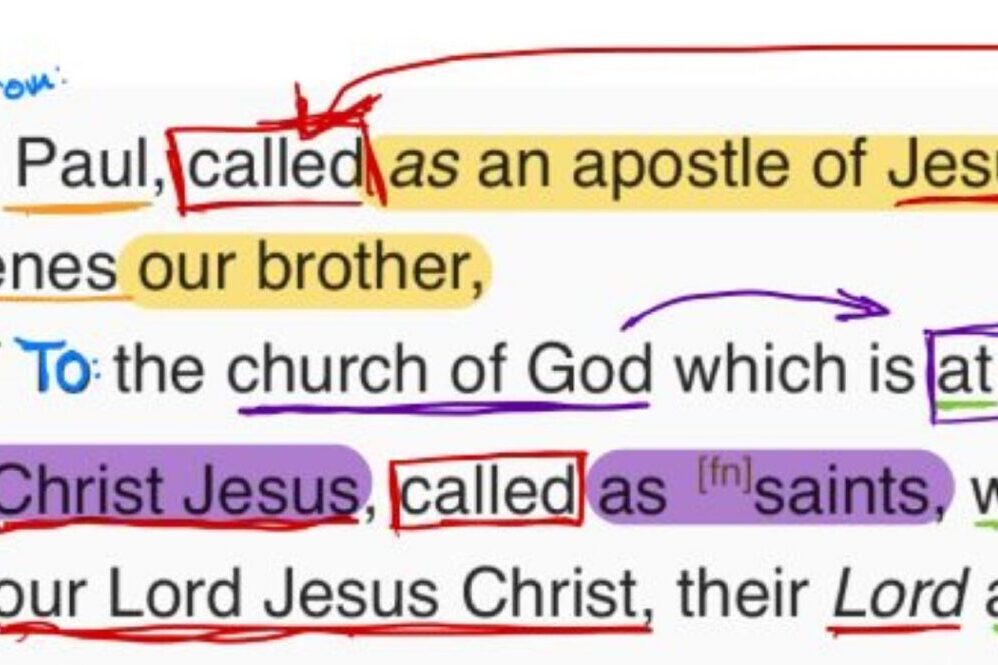*Introduction: This series is a review of the section of scripture that we learned about at my church this Sunday. Unfortunately, I missed out on church service this week (I was at a men’s retreat!), so I’ll begin by summarizing the chapter, and then I’ll provide my thoughts.
Chapter Summary:
A Second Review
The last days of Joshua
Chapter 2 continues in verse 6 with another review, going back to Joshua’s last days.
The campaign began with Joshua leading the Israelites across the Jordan River. Then he divided the land and assigned each section to the familial tribes.
When Joshua and the elders who “had seen all the great works of the LORD” (v7) were in charge, the people served the LORD. But eventually, Joshua and the elders died, and a new generation grew up, who did not know the LORD or the works he had done for Israel.
After the elders died, Israel forsook the LORD.
In verse 11, after this new generation grows up, it says that Israel did evil in the LORD’s sight and served Baalim and the other gods of the Canaanite pantheon.
Doing this provoked the LORD, and he was angry with the people of Israel. In his righteous anger, the LORD stopped fighting for the Israelites and gave them to their enemies. He even went so far as to fight against them, just like he said he would.
But God was still merciful
Their enmity with God, and his resulting wrath, “greatly distressed” the Israelites. Israel was oppressed by the people of the land. But God saw their oppression and verse 18 says it “repented [Him].”
Even though the Israelites were not faithful to him, God was still faithful to them. In such times when they were being oppressed as a result of their sin, God raised up a person called a “Judge” who would deliver the people from their enemies.
The people still rebelled and God’s wrath was rekindled
Unfortunately, after the judge died, the people would return to following the idols and false gods of the land.
In turn, God vowed that, because the people continued in their idolatrous sin, he would no longer drive out the inhabitants of the land for the Israelites. Instead, he would use them to test whether Israel will keep the way of the LORD.
God raised up Othniel as the first Judge
In chapter 3, Israel is oppressed by the king of Mesopotamia. The LORD raised up Othniel. The Spirit of the LORD came upon him and he judged Israel and went and defeated the king of Mesopotamia.
The people and the land, had rest from their enemies for the next 40 years while Othniel was alive.
My thoughts on Judges 2:6-3:11
It’s interesting that the scriptures seem to repeat what they just said.
In the previous installment of this series, the author details what the Israelites did at the beginning of their conquest. The author seems to focus on the physical actions that the people took.
However, in this second section, the author focuses much more on the spiritual application of their actions. Rather than just pointing out that they disobeyed God, the author makes the point that in doing so they rejected God and embraced the false gods of the land.
The next generation of Israelites should have known better
In Judges 2:7 it’s said that the people “served the LORD.” The problem is that even though they served him, they did not keep all of his commandments. Specifically, they neglected to teach their children to walk in the ways of the LORD (Here is a great list of verses about this command)
“We are commanded to teach the testimony of God to our children. It is not enough to preserve the deposit of truth in a book, and tell them it is there. We are commanded to teach it.”
John Piper – Raising Children Who Are Confident in God | Desiring God
There’s an old phrase that says “What you do in moderation, your children will do in excess.” The first generation mentioned here followed God’s way, although imperfectly. The second generation took their flaws to the next level. These scriptures provide us with a great example of why we must teach our children about the LORD.
They forsook God and served idols
The text says they served Baalim, then later specifically mentions Baal and Ashtaroth.
The word “Baalim” is a word similar to the Hebrew word “Elohim.” You’ll notice that they both end in “im,” (“eehm”) which indicates plurality. In the same way that the Hebrew word “elohim” means the plural “gods,” “baalim” refers to a plurality of beings.
“Baal” is the name of an important deity of the Canaanite pantheon. One thing I found interesting in my research is that the word “Baal” means “lord, owner.” In a way, the children of Israel turning to worship Baal instead of the LORD is a real snub. They’re essentially saying that the LORD is not their owner, but this other god is.
God was STILL faithful
Verse 16 begins (at least, in the KJV) with the word “Nevertheless.” This choice of words is interesting to me. “Nevertheless” implies some stress on the preceding events, and how what follows bears some sort of significance. The author could have also said, “Despite all this…”
Despite all of Israel’s rebellion, God “raised up” judges who “delivered” them from their enemies.
In our failure, God gives us Jesus
The language used in this section of scripture, phrases like “raised up” and “delivered,” point directly to Jesus. In fact, I suspect that over the course of this series, we will see a TON of alluding to and foreshadowing of Christ.
The imagery that God “raised up” these judges, and how they “delivered” the people, is strikingly similar to Jesus being raised up in the New Testament and delivering us from sin and death. Just look at these instances of the phrases “raised up” and “delivered” in the New Testament.
“Raised up”
- Luke 1:69
- Acts 2:24
- Acts 2:32
- Acts 3:26
- Acts 5:30
“Delivered”
- Romans 7:6
- Romans 8:21
- 2 Corinthians 1:10
- Colossians 1:13
- 1 Thessalonians 1:10
We even see that when God raises Othniel, the “Spirit of God came upon him,” after that is when he did his great work of freeing the people. This same pattern happens with Jesus: He is raised up, the spirit of God comes upon him (Luke 3:22), and then he begins his earthly ministry culminating in his saving sacrifice.
The Church mirrors Israel in many ways
The Old Testament depicts God’s and Israel’s relationship as a marriage. Many times throughout the Prophets’ writings, and also in these scriptures, we see the description of Israel’s idolatry as whore-like.
This is really strong language. And it should make those of us today evaluate our Church practices a little closer.
Israel is said to have “gone a whoring,” in verse 17, after other gods. They gave God’s rightful place as Lord and Owner of themselves to idols, in violation of the covenant where they swore that He would be their God and they would be His people. This reminds me of a marriage vow, which is exactly how the relationship between Christ and the Church is described.
Whenever the church decides to put something in Christ’s rightful place, it’s the same thing as we see in the Book of Judges.
Churches “go a whoring” in several ways. Some examples that come to mind are:
- Making their main concern about growing their funds or membership numbers instead of staying true to Christ
- Focusing on worldly solutions to problems, instead of pointing to Christ as the answer
- Following the words of a man instead of standing on the word of God
We fail. But even when we are not faithful, God is
Like in these scriptures, God has raised up a righteous judge who can and does deliver us from our greatest enemy. Jesus, despite our failures, has delivered us from the bondage of our sins so that we can be with God.
“Even so we, when we were children, were in bondage under the elements of the world: But when the fulness of the time was come, God sent forth his Son, made of a woman, made under the law, To redeem them that were under the law, that we might receive the adoption of sons.”
Galatians 4:3-5
One response
Very well written! I enjoy reading your thoughts on Scripture.










Leave a Reply